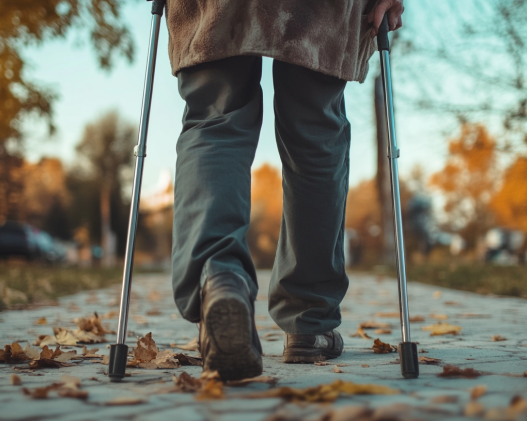As winter arrives and the days shorten, many older adults face a common but often overlooked challenge: nutrient deficiencies. These deficiencies affect everything from bone health to immune function. Among the most vital nutrients for seniors, Vitamin D stands out. It is essential for maintaining health, especially during colder months when natural sunlight exposure is limited. For older individuals, ensuring adequate Vitamin D levels can have a profound impact on overall well-being.
How Do We Get Vitamin D?
Vitamin D is obtained through two primary sources. First, sunlight triggers the skin’s lipids to convert into Vitamin D via UV rays. Second, Vitamin D can be consumed through foods and supplements. The body then converts it into its active form.
As we age, seniors tend to reduce outdoor activities. This significantly lowers their exposure to sunlight. The cold winter months only make things worse. Many elderly individuals prefer staying indoors, further decreasing Vitamin D production. Moreover, older adults may struggle to absorb enough Vitamin D from their diet due to weakened digestion and absorption capabilities.

The Widespread Issue of Vitamin D Deficiency in Seniors
Vitamin D deficiency is alarmingly common among older adults, particularly those over the age of 75. More than half of this age group suffers from insufficient levels. Studies published in the BMJ show a direct link between low Vitamin D levels and increased risks of falls, fractures, cardiovascular diseases, and cancer. Ensuring adequate Vitamin D intake can significantly reduce mortality risk and contribute to a longer, healthier life.

Why Is Vitamin D Essential for Seniors?
- Bone Health
Vitamin D aids calcium absorption and bone formation. This is crucial for preventing osteoporosis and reducing the risk of fractures in older adults.

- Muscle Strength
Vitamin D helps protect muscle function, which is vital for fall prevention and reducing the risk of injury.

- Immune System Support
Adequate Vitamin D levels boost the immune system. Seniors with sufficient Vitamin D are less likely to suffer from respiratory infections. During the COVID-19 pandemic, studies showed that those with adequate Vitamin D levels were less likely to experience severe symptoms.

- Cognitive Health
Research suggests that Vitamin D plays a key role in brain health. Seniors with low Vitamin D levels face a 50% higher risk of cognitive decline, including conditions like dementia.

- Cardiovascular Health
Low Vitamin D levels have been linked to heart disease and other cardiovascular problems. Supplementing with Vitamin D can improve heart health and reduce related risks.

Should Seniors Monitor Their Vitamin D Levels?
Given the high prevalence of deficiency, it is advisable for seniors to regularly check their Vitamin D levels. This is especially important for those who spend little time outdoors or have difficulties absorbing nutrients. Addressing Vitamin D deficiency can significantly improve quality of life and prevent severe health issues.
The Power of Vitamin D Combined with Other Essential Nutrients
For maximum benefits, seniors should combine Vitamin D with other key nutrients:
- Vitamin K2
Works with Vitamin D to promote bone health and direct calcium to the bones. This combination reduces fracture risk and enhances bone strength.

- Vitamin A
Boosts the immune system in tandem with Vitamin D. Vitamin A helps support immune responses and protects the body from infections.

- Vitamin B12
Supports cognitive health by maintaining the protective sheath around nerves. It has been shown to improve memory and prevent cognitive decline in seniors.

Conclusion
For older adults, it’s essential to monitor nutrient levels, especially during the winter months. Ensuring adequate Vitamin D intake, alongside Vitamins A, K2, and B12, can significantly enhance health, reduce the risk of serious conditions, and improve quality of life. Whether through outdoor activity, diet, or supplements, addressing nutrient deficiencies is key to aging well.

















